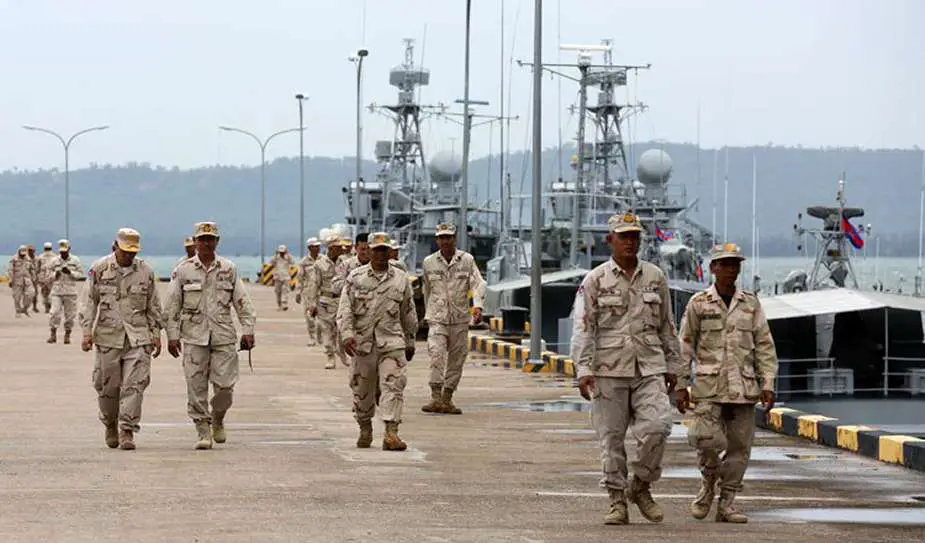Cambodian Navy develops Ream Naval Base amid growing Chinese influence
Cambodia's Prime Minister Hun Manet, the elder son of previous Prime Minister Hun Sen, said military modernization and development of the Ream Naval Base aims to strengthen Cambodia’s defense and is not intended to threaten any country, Tep Sony reports in Khmer Times.
Follow Army Recognition on Google News at this link

China's assistance has extended to Cambodia's naval capabilities: patrol boats and maritime surveillance equipment have been provided (Picture source: Khmer Times)
Cambodian Prime Minister Hun Manet made the remarks on January 23 while presiding over the 25th anniversary of the establishment of Cambodian Royal Army Command Headquarters. “I would like to reiterate that the Ream Naval Base is often mentioned in the newspapers. Article 53 of our Constitution makes it clear that Cambodia does not allow foreign military bases on its territory, and Cambodian troops also have no base on any country’s territory except under the United Nations (UN) peacekeeping missions,” he said.
Hun Manet added that there is no international law prohibiting countries from modernizing their defense capabilities, noting that strengthening the army’s capacity is aimed at participating in maintaining peace and stability, both within Cambodia and the region.
In recent years, the Cambodian Armed Forces, particularly the Royal Cambodian Army, have undergone a substantial transformation, largely due to significant support from China. This development has had a notable impact on Cambodia's defense capabilities and has garnered international attention.
China has deepened its defense ties with Cambodia, providing various forms of assistance that have contributed to the modernization and expansion of Cambodia's military capabilities. One of the key aspects of this partnership has been the infusion of modern military equipment. Cambodia has acquired advanced weaponry, including tanks, armored vehicles, artillery systems, and small arms, thanks to China's support. This upgrade in hardware has significantly enhanced the operational effectiveness of the Cambodian Army.
In addition to equipment, China and Cambodia have engaged in joint military exercises and training programs. These activities are aimed at improving the skills and interoperability of Cambodian troops, ensuring that they are better prepared to respond to a wide range of security challenges.
China's support has extended to infrastructure development as well. Military bases and facilities in Cambodia have undergone construction and renovation, enhancing the logistical capabilities and overall readiness of the Cambodian Army. China's assistance has extended to Cambodia's naval capabilities: patrol boats and maritime surveillance equipment have been provided.
Furthermore, Cambodia has actively participated in international peacekeeping missions, with China providing support in terms of training and equipment for Cambodian troops deployed on United Nations peacekeeping missions. Both nations have also cooperated on counterterrorism initiatives to address regional security concerns.
While this collaboration has strengthened Cambodia's defense capabilities, it has raised concerns on the regional and international fronts. The close defense ties between Cambodia and China are seen as part of China's broader geopolitical strategy in Southeast Asia, potentially shifting the balance of power in the region. This dynamic has the potential to strain Cambodia's relations with other countries in the region with competing interests, leading to diplomatic challenges on the international stage.
Defense News January 2024
- Hits: 4134
















